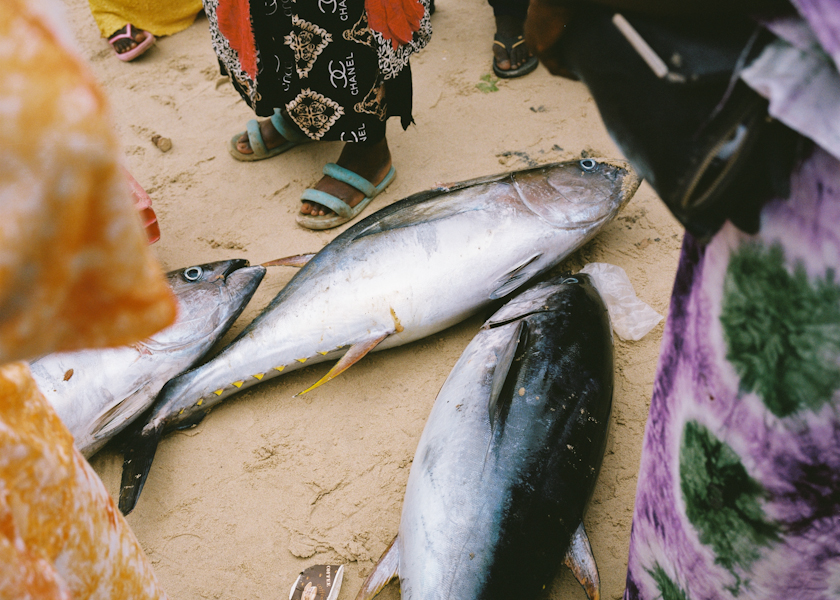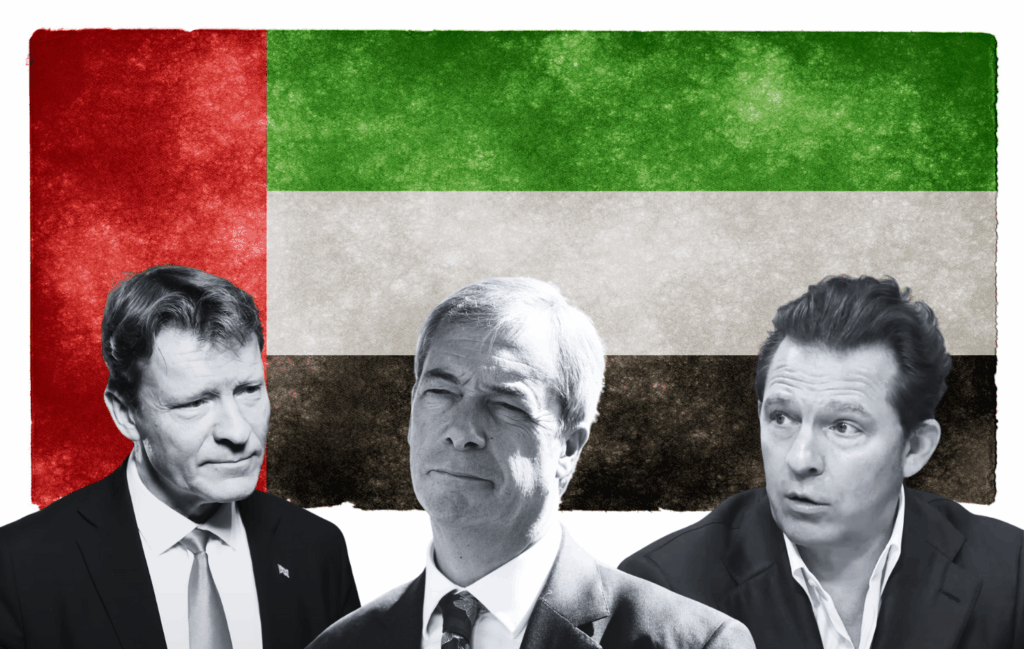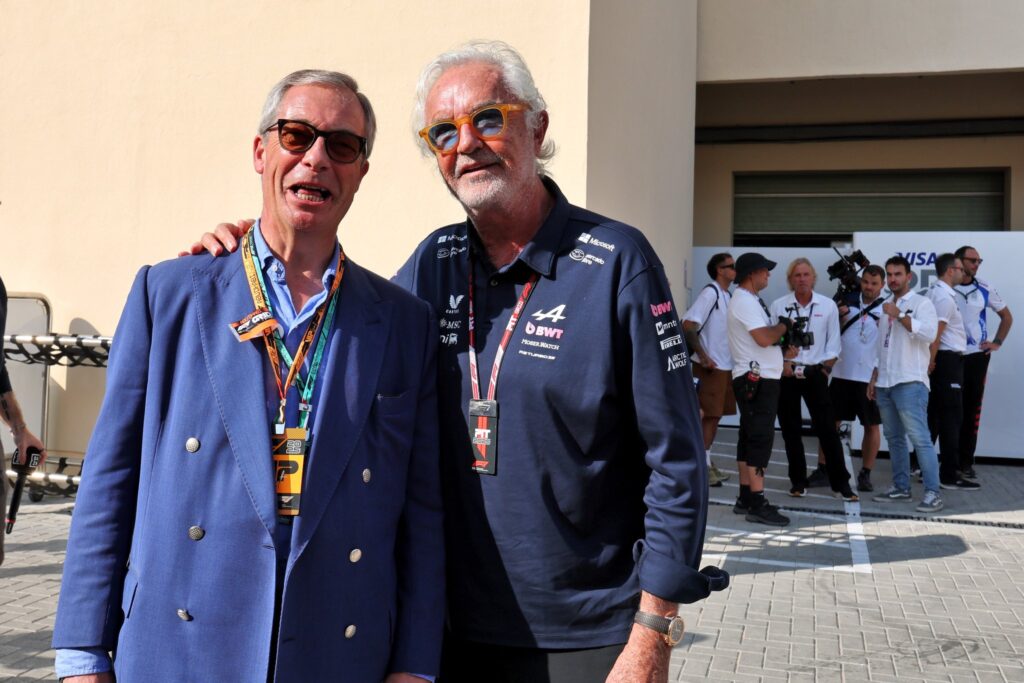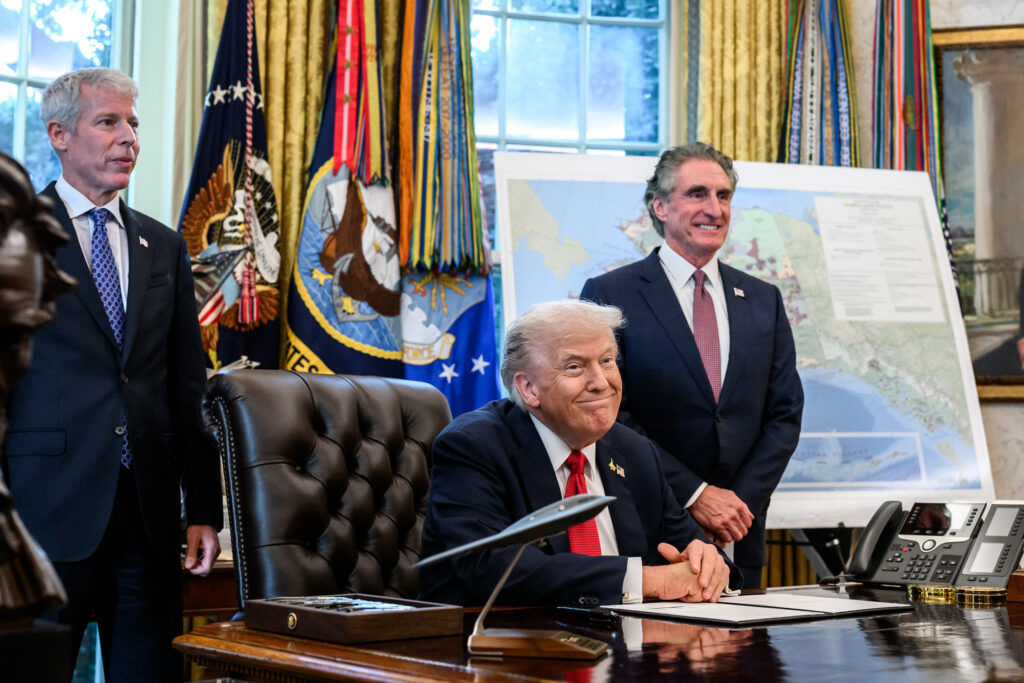This story was produced in partnership with the investigative journalism platform Follow The Money.
On a beach strewn with plastic and fish waste on the eastern side of the Senegalese capital Dakar, a lorry is being loaded up with small fish that have just been brought ashore in colourful wooden canoes.
For generations, the daily catch in Dakar has been sold directly on the beach to women traders who smoke the fish and sell it at the local market. But now fishermen have a new, and powerful, customer: fishmeal factories which produce feed for the global fish farming industry, the fastest growing food sector in the world.
Wholesaler Bobo Tall explains that no one knows where the lorry will end up. “That can change at the last minute, depending on supply and price. Because the fishmeal factories offer the most, they have first choice and get the best fish. What’s left goes to the local market,” he says.
A new investigation by Follow the Money and DeSmog can reveal that sardines from Senegal are fed to sea bass – labelled as sustainably farmed – which is sold in Dutch supermarkets.
Subscribe to our newsletter
Stay up to date with DeSmog news and alerts
Analysis of trade data with on-the-ground reporting traced Senegalese feed fish to Albert Heijn, the largest supermarket chain in the Netherlands. Its stores will often stock twice as much farmed sea bass, trout and salmon as wild-caught varieties.
With fish stocks under pressure worldwide and many popular species under threat, the fish farming industry is seen as an important route to feeding a growing world population. In 2022, for the first time, more fish were farmed than caught at sea.
This is a lucrative business: the sector already has an annual production value of 265 billion dollars. The development of a sustainable farmed fish sector is also a key goal of the EU’s Common Fisheries Policy.
But as this investigation reveals, large-scale industrial fish farming has a major disadvantage. European consumers prefer to eat salmon, tuna, sea bass and other carnivorous fish but millions of tonnes of wild fish must be caught to feed them.
And in the case of Senegal, these small fish would otherwise be feeding people.
“Rich European consumers are indirectly taking food out of our mouths,” says Amadou Kamara, who is part of a network of coastal communities calling for resistance against the fishmeal industry. “When the season starts in December, we immediately see the lorries appearing on the beach. They drive en masse from the coast to the factory.”
Professor Achim Schlüter of the Leibniz Centre for Tropical Marine Research confirms that fish are being bought up in large quantities by fishmeal manufacturers: “Local Senegalese fish processors and traders are being outcompeted by fishmeal factories in the battle for small pelagic fish,” he says.
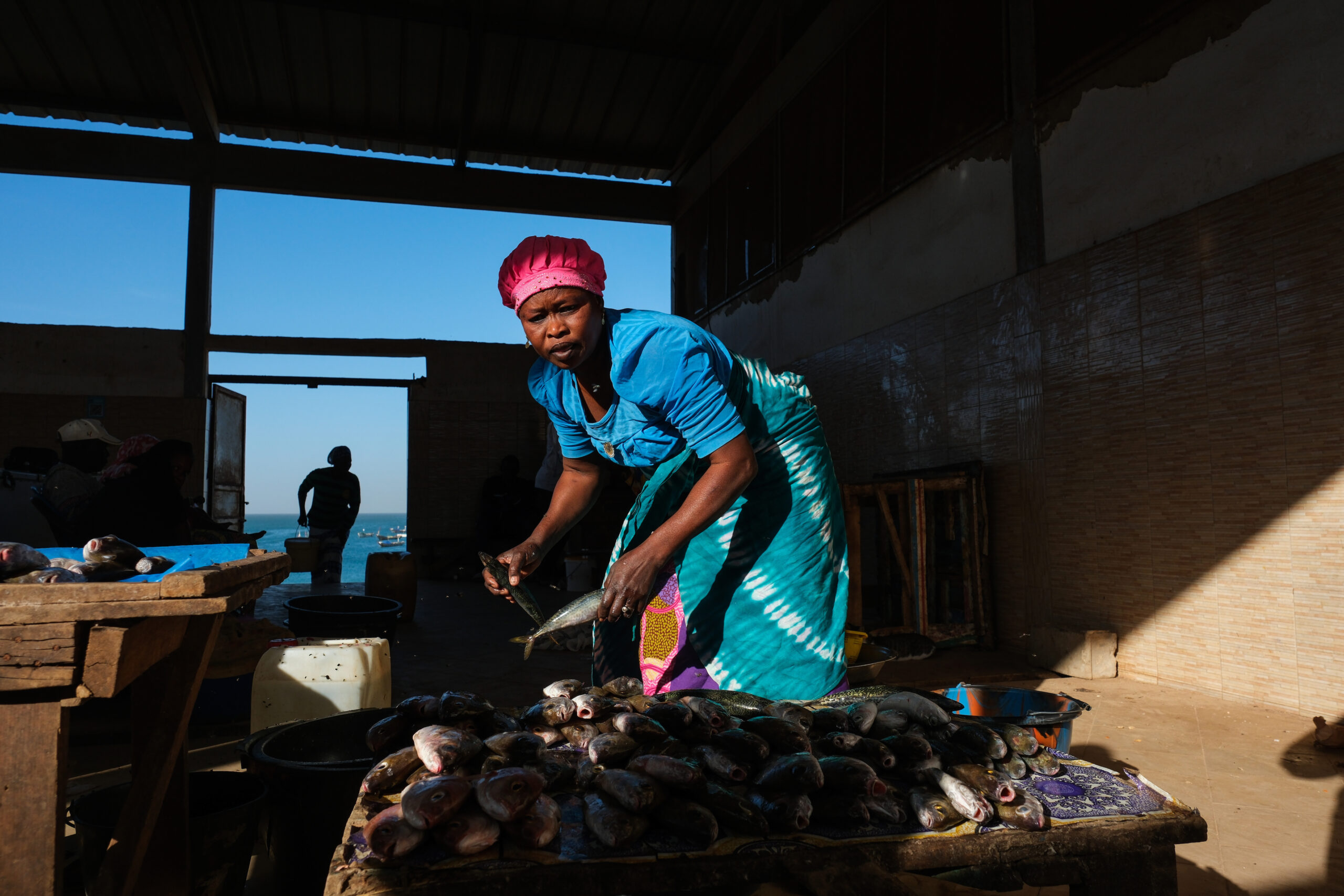
Growing Demand
Fishing is vital in Senegal: around 30 percent of all animal protein consumed there comes from the sea. Land-locked neighbouring countries such as Mali and Burkina Faso are also partly dependent on fish from Senegal for low-cost nutritious food.
Dozens of fishermen told Follow the Money that as soon as the sardine season arrives in December and supplies are plentiful, batches of fish are bought up by fishmeal factories.
The oldest fishmeal factory in Senegal belongs to the company Afric Azote and opened its doors in the late 1960s. Afric Azote made meal from fins, bones, heads and other fish waste from the harbour and from markets and beaches in and around Dakar.
In 2022, the FAO warned that due to the growing demand for fishmeal many factories were no longer using slaughterhouse waste for their production but were systematically buying up fresh fish that could otherwise have been eaten by the local population.

This investigation was in collaboration with Follow the Money.
The Afric Azote factory is located on a dusty roundabout in the middle of Dakar’s port area. An endless procession of lorries drives by, while birds of prey circle above the rusty entrance gate, waiting for a meal. The doors open regularly and a blue motorbike taxi with a covered load drives onto the factory premises.
Rumours that Afric Azote also makes meal from fresh fish are resolutely dismissed by a factory manager. “That story is one hundred per cent untrue,” he says in a small office filled with bags of fishmeal, sustainability certificates and paperwork.
“To make one kilo of fishmeal, you need five kilos of fish,” he says. “At current prices, it would be completely nonsensical from an economic point of view to make meal from sardines that we have to buy on the market.”
Contracts with Fishermen
Internal company information that Follow the Money was able to access tells a different story. It shows that in December 2024, Afric Azote purchased more than 470 tonnes of whole fish on the beaches around Dakar. On some days, the company even purchased twice as much fish as it did offal. According to the factory manager, this was all fish that was unfit for human consumption.
Fishermen and traders working at the fish markets around Dakar deny this claim. “Supply contracts are being concluded with local fishermen in the name of Afric Azote,” says trader Tall. “Local fishermen who supply to these factories stop buying ice because they no longer need to keep their catch fresh for the market. For the fishmeal factories, this is a perfect excuse: they can say that the fish was unfit for human consumption.”
Afric Azote said in a comment that it does not enter into any supply contracts with fishermen and only uses slaughterhouse waste. The industry also emphasises that it is not illegal in Senegal to use fresh fish for meal production.
“Our activities provide stable employment for Senegalese families, generate foreign exchange for the country and contribute to the industrial development of the fishing sector,” a spokesperson said. “We are committed to sustainability, transparency and continuous improvement of our sourcing and production methods.”
The sector does seem to be increasingly aware of the problems, however. A report commissioned by the aquaculture industry itself in 2023 warns that the increasing use of fresh fish in Senegal is leading to “loss of income” among the local population and “rising food prices”.
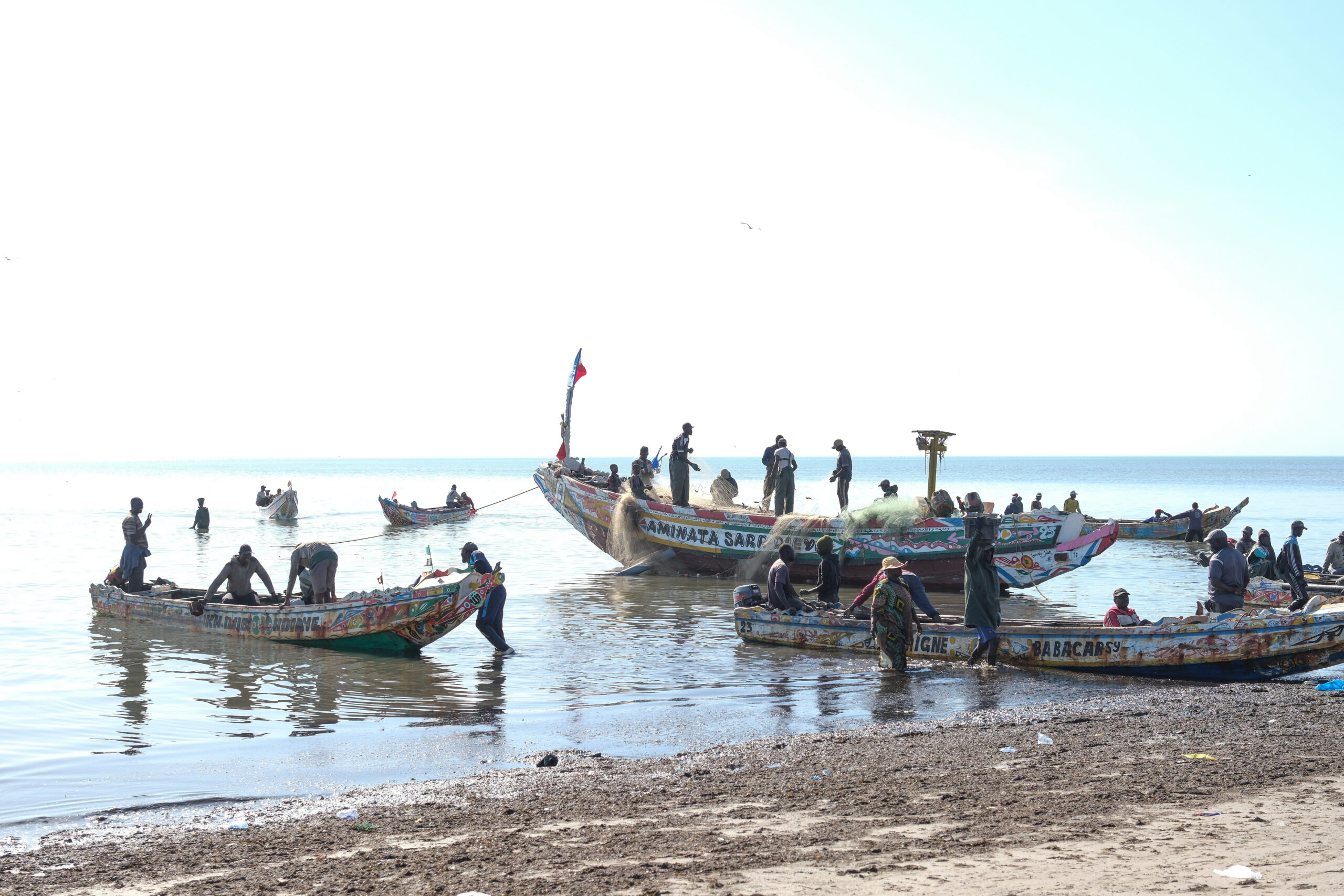
Unknown Origin
With an annual production of approximately 13 thousand tonnes, Senegal is a relatively small player in the global fishmeal market. Peru is by far the largest producer. In 2024, Peruvian production was more than 1 million tonnes, twice that of the numbers 2 and 3: Vietnam and China, according to the US Department of Agriculture (USDA).
Afric Azote also regularly trades with customers in Turkey, which is an important market for the Senegalese fishmeal industry. According to trade data analysed by DeSmog, a total of 82 shiploads departed from Dakar to various Turkish ports between 2020 and 2024. The largest shipment had a market value of more than $800,000.
According to Turkish government figures, fish farmers produced more than a million tonnes of fish in 2023, some of which was destined for Dutch supermarkets.
Most of the fishmeal used as feed in Turkey is imported. Turkish farmer Noordzee, is an important customer of the Senegalese. The company farms sea bass and trout in large round net cages in a bay near the town of Güllük, in the south west of the country.
DeSmog and Follow the Money examined trade data showing that Noordzee purchased $1.7 million worth of fishmeal from Afric Azote between 2022 and 2024. In addition, the group received five shiploads worth a total of $2.4 million in Senegalese fishmeal from an unknown factory.
According to Greenpeace campaigner Aliou Ba, fishmeal that comes from these unnamed factories – Senegal has a total of six – is the most problematic: “The further you get from the capital Dakar, the bigger the problems are. In most coastal villages, they simply load the lorries with fish and drive to the nearest factory.”
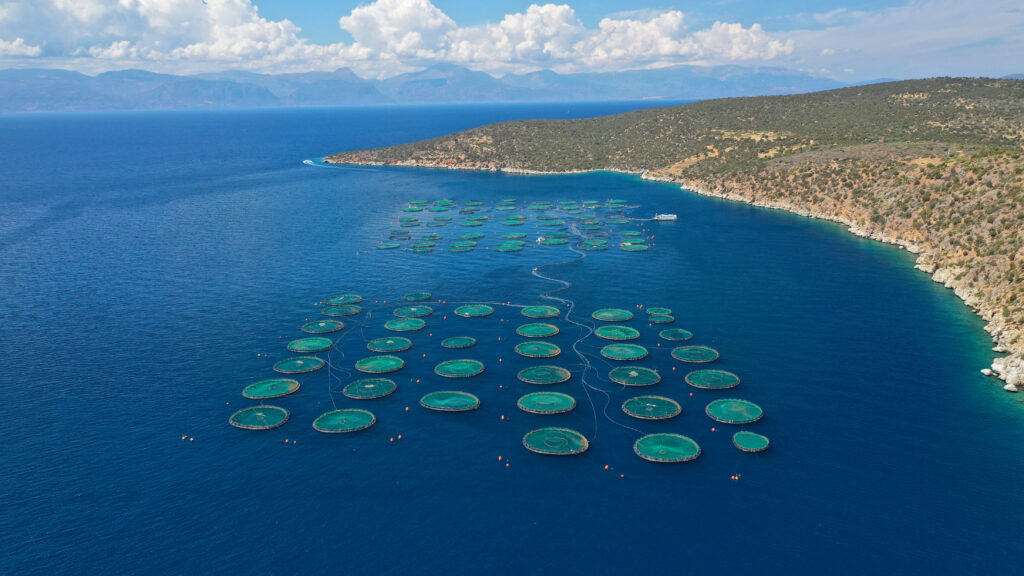
Dutch Link
The Netherlands is an important international link for Noordzee. The company serves various markets in Europe through its subsidiary ACV, which, according to the Chamber of Commerce, is a wholesale and distribution company based in a small warehouse on an industrial estate in the fishing village of Breskens in Zeeland.
An employee of Noordzee confirms by telephone that the sea bass produced by the group in Turkey ends up on the shelves of Albert Heijn and other large Dutch supermarkets “via middlemen”.
Noordzee holds a certificate from the Aquaculture Stewardship Council (ASC) to guarantee that their farmed fish is sustainable. However, the associated sustainability obligations are not watertight.
However, this will soon change, says ASC spokesperson Ilse van Sommeren: “From 31 October 2025, all certified farms will have to use feed that comes from certified feed factories. This will apply to all countries where the ingredients for the feed come from, including Senegal.”
A spokesperson for Albert Heijn emphasised that the supermarket chain purchases through suppliers and does not deal directly with fish farmers. “Albert Heijn has been selling farmed fish with the ASC label since 2012. Our supplier purchases sea bass from a regular producer and farm in Turkey,” they said.
Albert Heijn has the ambition to reduce its dependence on wild fish for feed, aiming to reduce the proportion of fishmeal from wild-caught fish to a maximum of 500 grams per kilo of farmed fish.
The spokesperson added: “For a number of years, we have been working with [conservation NGO] WWF-NL on an approach that will enable Dutch supermarkets to halve the ecological footprint of the food system by 2030. Albert Heijn is the first Dutch supermarket to commit to this approach. Fish is an important part of this. One of the ambitions being worked on within this collaboration with WWF-NL is that by 2030, 100 percent of fish feed for farmed fish will come from more sustainable sources.”
Nordzee did not respond to a request for comment.
The Netherlands is the latest retail market to be linked to Senegalese fishmeal, after revelations earlier this year from DeSmog and The Guardian, which found seabass fed on small West African fish was being sold in UK supermarket chains earlier this year. This follows revelations in 2024 from investigative outlet Danwatch that Danish firms also buy Senegalese fishmeal.
Critical experts such as Beatrice Gorez of the Coalition for Fair Fisheries Arrangements (CFFA) fear that such sustainability ambitions will clash with the expansion drive of the fish farming sector itself. After all, if the demand for fishmeal continues to grow, there is a greater chance that suppliers will have to buy up fresh fish to meet that demand.
Gorez fears that the European Commission‘s plans to grow the aquaculture sector in the EU will only exacerbate the problems. Exports of Senegalese fishmeal to the EU have already increased fourfold over the past decade. According to Gorez, the elephant in the room is whether European consumers should simply eat less fish.
“As demand on the global market grows, fishmeal factories are finding it increasingly easy to outbid local traders. The aquaculture sector says it wants to become more sustainable, but the root cause of the problems is the rapidly growing popularity of sustainably farmed sea bass and salmon among wealthy consumers in Europe,” she says.
This story was produced in partnership with the Pulitzer Center.
With additional reporting by Hazel Healy and Brigitte Wear.
Subscribe to our newsletter
Stay up to date with DeSmog news and alerts


